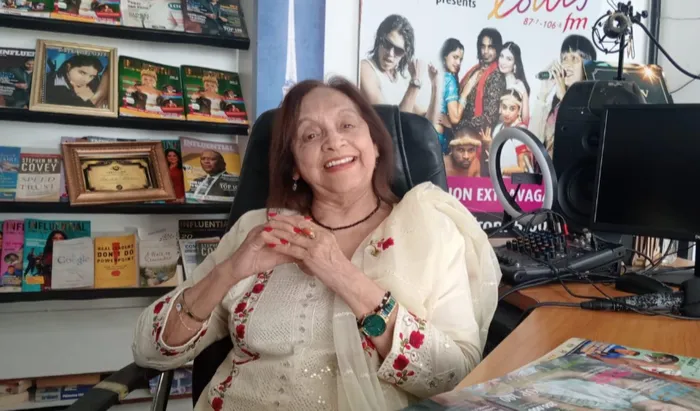
Pinglawathie “Pinky Mothie” Doorghepersadh, is the director of Big M Productions, an entertainment and digital marketing company. She is also the director of the Influential Women and Men Awards.
Image: Nadia Khan
In commemoration of Heritage Month this September, Pinglawathie “Pinky Mothie” Doorghepersadh, the director of Big M Productions, shared her journey in show promotions, highlighting South Africa’s rich cultural diversity.
BORN into a music and cultural family set the tone for the future of Pinglawathie Doorghepersadh, better known as “Pinky Mothie”.
She has spent more than three decades promoting South Africa’s cultural diversity through entertainment.
The 75-year-old of Morningside, is the director of Big M Productions, an entertainment and digital marketing company.
The company, which was initially known as DM Mothie Productions, was founded in the late 1960s by her late husband, Ramjith “Mothie” Doorghepersadh, a well-known show promoter and businessman.
However, after his passing in 1994, Doorghepersadh, who was widowed at age 37, took over the business.
To date, she, together with her son Rajiv Mothie, an actor, producer, and the chief executive of the company, continue to host a variety of events, many of which represent the diverse culture in South Africa.
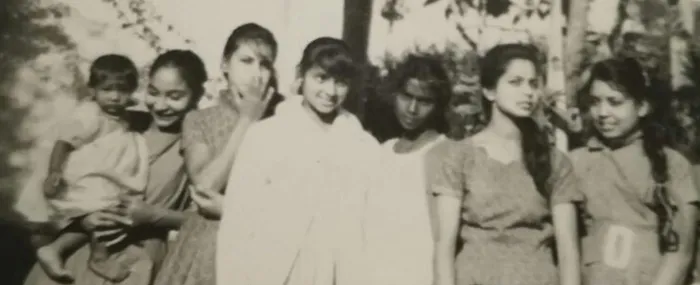
Doorghepersadh (third from left), with members of the Divine Life Society.
Image: supplied
Doorghepersadh, who is the third born of nine children (8 girls and 1 boy) , said her journey started from humble beginnings, growing up in Northdene near Pinetown.
She said her father, Gokul Rambharose, worked as a manager at a transport company and her mother Dooknie was a housewife.
Doorghepersadh said she was four when her mother passed away during childbirth. Her father remarried three years later and her three younger sisters were born.
She said after her mother’s passing, their lives changed, especially for her two oldest siblings, Danny and Sheila, who are now both late.
“I was quite young, so I don’t remember much about my mother. But when she died our lives completely changed. My two older siblings, who were just 12 and 10 years old at the time, took on the parenting role as my father had to work.
“We didn’t have electricity at the time, so every day my brother would return home from school and light a fire to boil water for us to bathe and then prepare our meals. My sister had to clean the house and wash the clothes. We were poor, but we were happy to be with each other.
“I used to go to school with my sister. We used to walk about 5km to school in the morning and again in the afternoon as there was no money for bus fare. But we were so happy chatting that we did not notice the distance.
“I was still young to be registered, so I sat next to my sister during her lessons. The teachers understood our situation. Our mother had just died. The neighbour was already looking after my younger sisters. I remember I used to get tired and would fall asleep with my head on my sister's lap, while she did her studies.
“Over the years, our neighbours encouraged my dad to get remarried as they noticed the strain of not having a mother figure in the home was having on my siblings. After he remarried, it became much easier and we had the love of our stepmother. While we didn’t have much as we were not well to do, the main thing was that we were happy and taken care of,” she said.
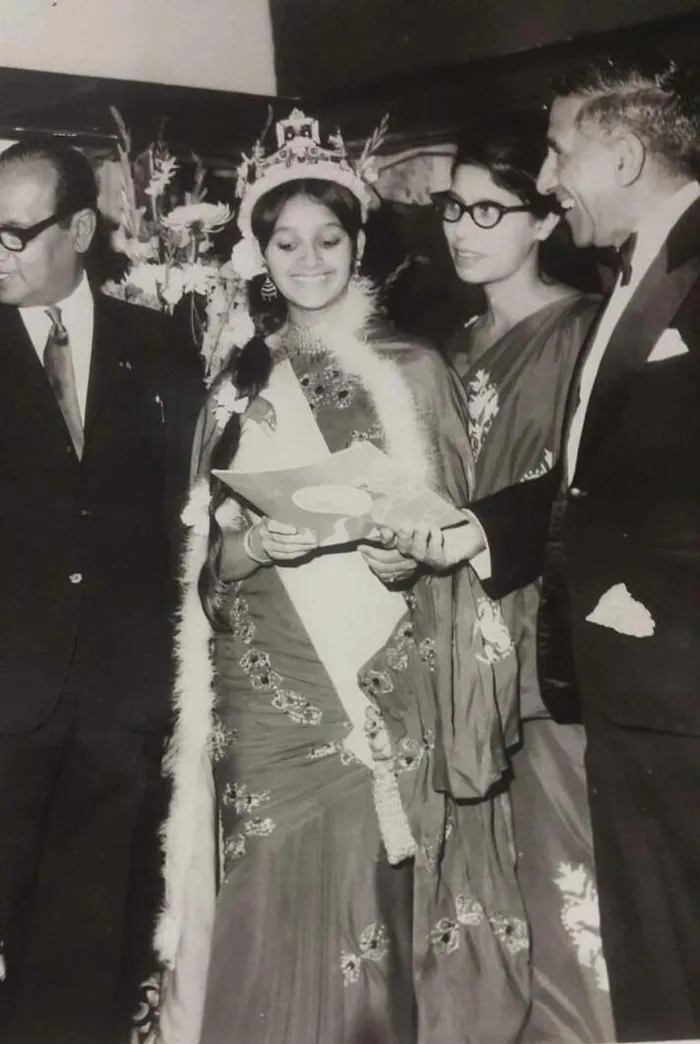
She was crowned winner of the Surf Sari Queen contest in 1970.
Image: Supplied
Doorghepersadh said she started Class 1 (Grade 1) at Malvern Primary School at age 5.
“The following year, even though I was still quite young, they registered me as I was quite a smart girl. I was at the school until Standard 6 (Grade 8), and thereafter completed Standards 7 and 8 at Pinetown Secondary School. However, they didn’t go further than Standard 8, so I thereafter attended the then-Durban Indian Girls Secondary School and completed matric.”
Doorghepersadh said it was during high school that she acquired the nickname, “Pinky”.
“We were having a sports day and it was hot. I was quite flushed; my face had turned pink. The teacher was calling our names, but I was distracted. The teacher then shouted, ‘Pinky’ and everyone started laughing. From that day onwards they all called me Pinky, and it stuck over the years. Today, ‘Pinky Mothie’ has become a household name.”
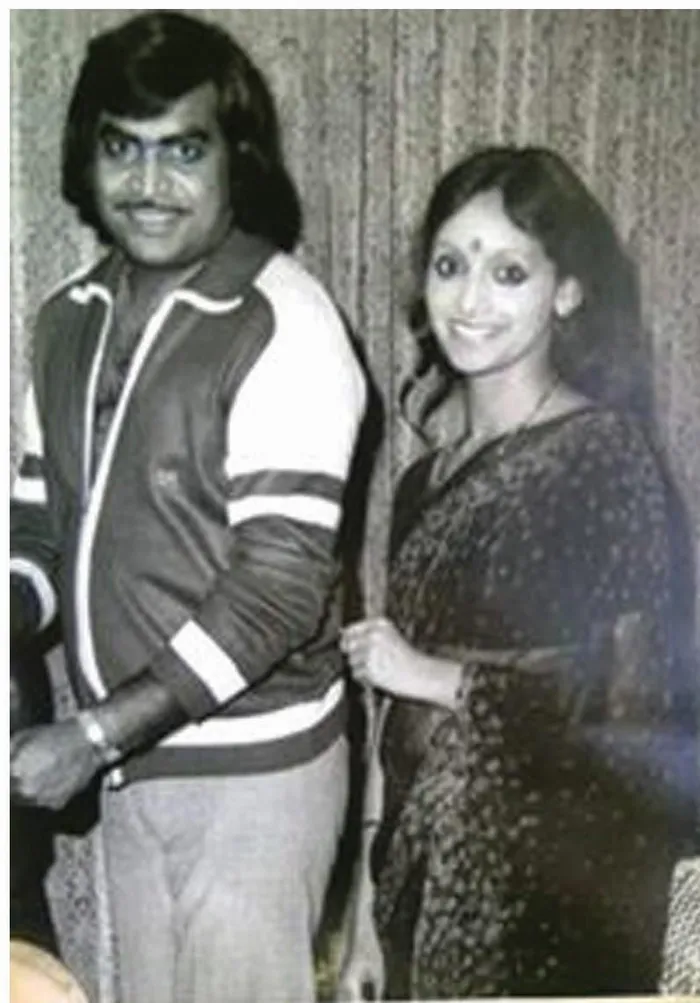
With her husband, Ramjith “Mothie” Doorghepersadh, who is now late.
Image: Supplied
Doorghepersadh said while her father was adamant she should pursue a profession either as a doctor or a lawyer, she got married about a year after matriculating.
“My father was strict. He had to be as he was raising eight daughters. We were also quite scared of him, and would never look or speak to a boy. He always told me that he wanted me to become a professional as I excelled in school.
“However, we used to go to the Divine Life Society ashram in Reservoir Hills every Sunday. My dad, who was also a musician, led the satsangh, while my sister Sheila and I sang. During this time, my late husband, who was about four years older than me, saw me. He always looked at me, but I did not pay him any attention. This continued for months, and then he somehow made friends with my brother. My brother had a band and they practised at our home. We didn’t have electricity, so one afternoon while I was putting lamps in the room they were practising in, my husband arrived at our home to join them.
“He spoke to me and I ran away as I was scared for my dad. But he kept returning to our home and after a while, he asked me if he could have my phone number, but I told him we did not have a telephone. He then asked me how I travelled to school. I told him I took a bus. The next morning, he was parked at the bus stop. He lived in Northdene as well both on the other end of the area. He ran a salon at the time and picked up his workers who lived nearby me. We spoke during the entire trip to Durban and became good friends,” she said.
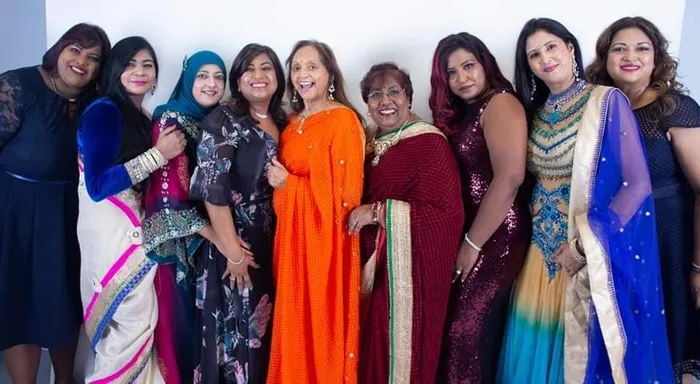
With some of the women who have been honoured in her Influential Women Awards.
Image: Supplied
Doorghepersadh said after matriculating, she pursued her studies via correspondence.
“Before we could get married, my husband paid for my studies. I completed courses in hairdressing and business management, which were both beneficial after I joined my husband in his businesses after we were married.”
Despite her father’s disapproval, she got married in 1969.
“My father was still set on me becoming a doctor or lawyer, but he also didn’t want me to marry my husband because he was from a ‘lower caste’ and because he owned a salon. On the day of the wedding, my father did not attend until my husband’s friend, who was a priest, rushed to our home and pleaded with him as he was needed for the Kanyadan. This is a Hindu wedding ritual where the bride's father ‘gives away’ his daughter in marriage.
“However, when it was time, he still had not arrived. But as my brother was about to do it, he arrived and held his hand. However, my father handed me over and left,” she said.
The couple, who moved to Shallcross, later had four children - Veena Rampatha, a senior administrator; Leena Tickley, a financial manager; Sarah Mahabir, a business owner; and Rajiv. She also has six grandchildren and one great grandchild.
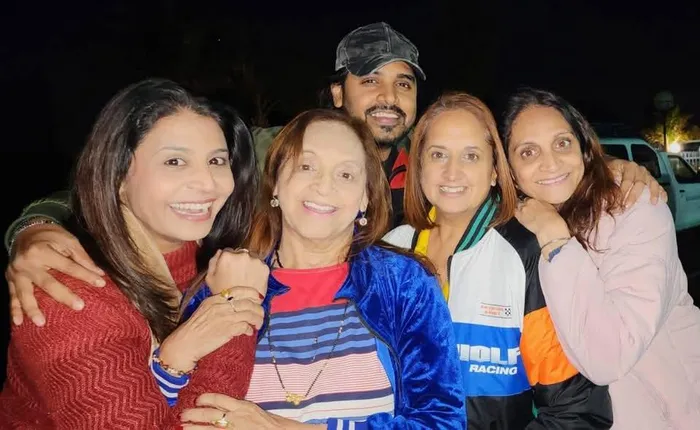
Doorghepersadh, with her children, from left, Leena Tickley, Rajiv Mothie Doorghepersadh, Sarah Mahabir and Veena Rampatha.
Image: Supplied
Doorghepersadh said she maintained a balance between taking care of their home and assisting her husband with his businesses which expanded over the years.
“He initially had only one salon, but that grew to four, three of which were in the Durban CBD. He later opened another salon in Havenside, Chatsworth. I managed the business, and due to completing my hairdressing course, I was also able to assist when needed.
“He also had a passion for entertainment. I remember we were newly-married and he had his first show - it was an Eastern band contest at the City Hall, where eight bands performed. The hall was packed. These shows continued and later we had solo singer contests. We grew to a point where we had shows in Johannesburg and Cape Town. Many people benefited from these contests as they went on to become legends in the industry. I was at his side all the way,” she said.
Doorghepersadh added that during this time she also participated in Sari Queen contests.
“My husband initially got me to enter as I was quite reserved, but he told me to give it a try. I entered the Surf Sari Queen contest, which was being held by one of the well-known show promoters at the time. I didn’t know how I was supposed to walk and was up against other contestants who were experienced. But I won and received an all-expenses trip to Swaziland and a ton of gifts. I went on to win more thereafter.
“We later started holding the Sari Queen contests and I was in charge of it. We continued with the contests for many years, which later became a fashion contest before we stopped. In addition, we also held the Artes Awards, which honoured singers and dancers. This has continued to date,” she said.
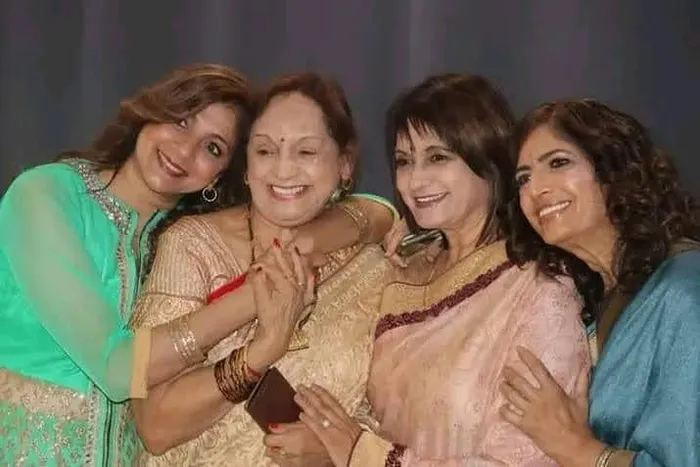
With some of her sisters, from left, Meera Fazel, Meela Bangtu and Shakun Luckan.
Image: Supplied
Doorghepersadh said after her husband’s passing, she could not give up for the sake of her young children.
“I kept thinking I still have to provide for them. They were all still in school and I could not just give up. However, I decided to sell the three salons in the Durban CBD as it would be difficult to manage on my own. I decided to keep the one in Chatsworth as it was a flourishing business. I also continued with the show promotions, and coordinated the first show on my own, which was a tribute to my husband. We had a large number of performers from bands and singers to dancers pay tribute to him.
“We also just entered a new democracy, and now we no longer had to only do Bollywood shows like we had been doing for years. We started to incorporate different races and music into our shows. We now have African and white dancers perform Bollywood dances, while Indians are performing traditional African dances. We have embraced South Africa’s rich cultural diversity through performance art,” she said.
Doorghepersadh said in addition, for more than a decade, she had been honouring women who have achieved success and made contributions to society by hosting the annual Influential Women Awards.
She said they are also now honouring men.
“This year we are honouring the top 100 women and top 100 men from across the country. My goal is to now take this initiative on an international platform.”
Doorghepersadh said one of the highlights was the release of the local government-funded movie, Never Give Up, a true life story about her.
“The movie was a culmination of my life story, from not receiving the approval of my father for my marriage to my career journey and not giving up even after my husband died. The film was also aimed at inspiring women. The movie, which included a crew from India and was filmed in South Africa, took about six weeks to complete. When it hit cinemas in Durban, Johannesburg and Cape Town, the response was phenomenal. It was definitely one of the greatest highlights in my life.”
She added that during the the 1970s and 1980s, she was also the first Indian woman to feature in a TV commercial for a well-known rice brand and the first Indian to adjudicate for an international eisteddfod held in South Africa.
Doorghepersadh said to unwind she enjoyed reading, listening to music, and spending time with her family.
Related Topics: